Chris Isaak on First Comes The Night, '56 guitars and '70s punk
"My house is like the home for abandoned guitars!"
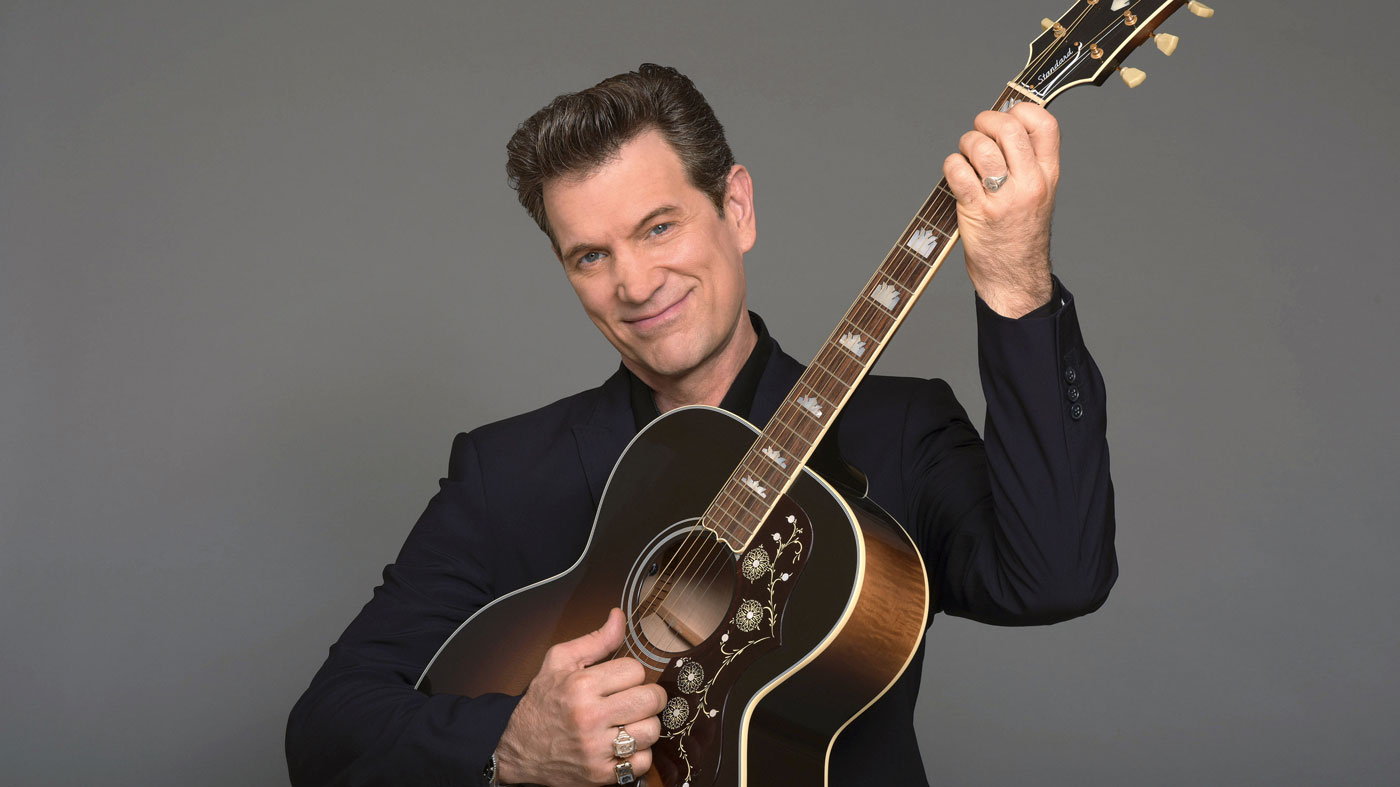
Introduction
When we first get introduced to Chris Isaak at Warner Bros Music HQ in London, he’s in a characteristically humorous and ebullient mood, a halfsized ‘Chris Isaak’-emblazoned Gibson acoustic guitar sitting across his lap.
The record is classic Isaak, mixing up country, rock ’n’ roll, rockabilly, balladry and a myriad of other genre nuances
Chris’s drummer, Kenney Dale Johnson, is also in attendance, tambourine in hand, and - as the tape machine’s recording light flickers into life - the pair kick straight into a beautiful impromptu version of Every Time I Miss You More from Isaak’s new long-player. The harmonies are nothing short of mesmerising.
It’s now over 30 years since Chris’s debut solo album, Silvertone, first hit the shops and 26 years since the release of his most well-known song, 1990’s Wicked Game. The esteemed singer, songwriter, actor, TV host and X Factor Australia judge has released nine albums since that huge hit, and his latest, First Comes The Night, has already garnered significant acclaim from critics and fans alike.
The record is classic Isaak, its 12 songs mixing up elements of country, rock ’n’ roll, rockabilly, crooning balladry and a myriad of other genre nuances - not to mention some seriously top-notch guitar playing.
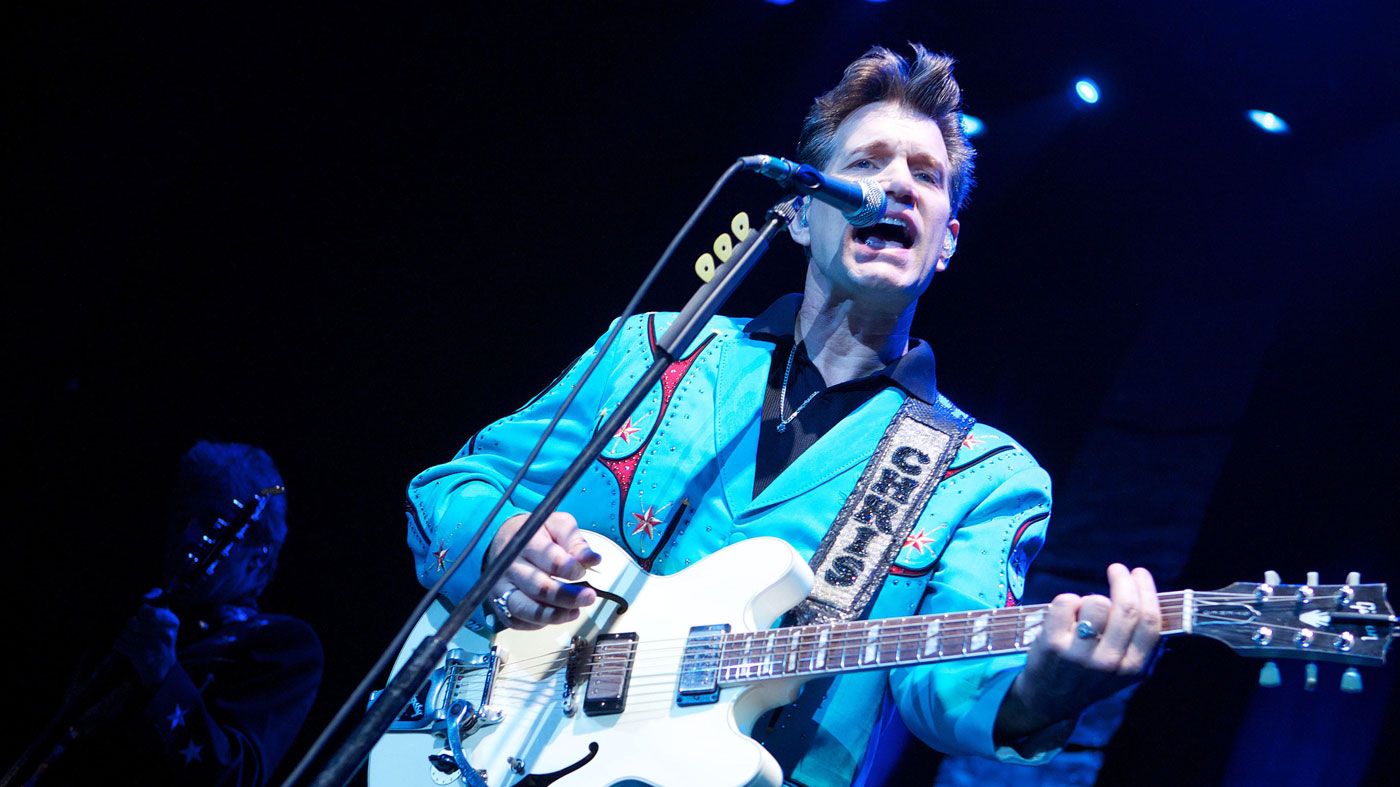
First comes the album
First Comes The Night is your first album of original material since 2009’s Mr Lucky. How far do some of the songs go back?
I’m always the worst musician in the band, but I can write songs and I can sing and I can front bands
“Some of them go back probably six or seven years as pieces of songs that I was working on. I write songs all the time; I don’t write for the record, but I’m always writing songs, and whenever I’m going to put out an album, I listen to everything I’ve got and go, ‘Okay, I’ll make one out of this and one out of this…’ and then I put them together. I’m also lazy by nature so I’ll write 20 songs but they’re not finished completely. There’s always the last verse or something to write. They go, ‘Have you got songs for the album?’ and I say, ‘Yes I do!’ and I go home and finish eight songs in a night!’
Do you always write on guitar?
“Not always. I like to play but I’m not a great guitar player. I’m always the worst musician in the band, but I can write songs and I can sing and I can front bands. I do write on the guitar most of the time, but once in a while, I’ll write little pieces on the piano, although I can’t really play piano.
“I write on this sometimes [referring to the small ‘Chris Isaak’ Gibson he’s lightly strumming]. It’s from 1964 or 1965 and it’s kind of half-size so it’s good to take when you’re travelling around. In my house, there are guitars everywhere you look - it’s like the home for abandoned guitars! There’s a guitar in every room by every chair for writing, but when I lay in bed, I like these little ones because they lay on you nice.”
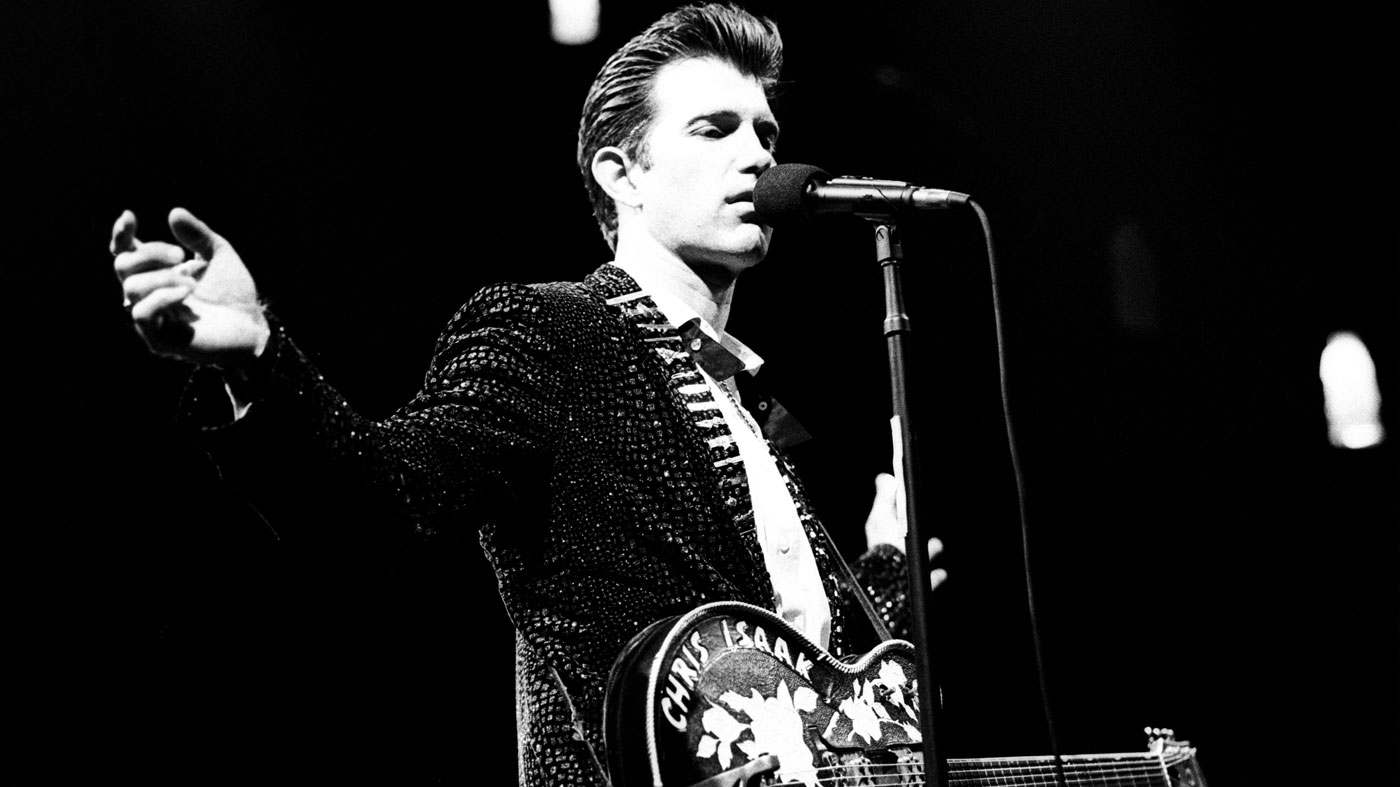
Six-string roots
Tell us about some of the other instruments in your collection…
“If I counted everything up, it would probably be 40 guitars or maybe less now. I sold a few really crummy ones to get a few really good ones, but it’s not like I collect them and I just want to look at them. They’re all work guitars.
1956 is the year I was born and I have a real penchant for getting things from that year
“You need a 12-string acoustic, you need a 12-string electric, you need a nylon-string. I’ve got half-size guitars, a guitalele and then I’ve got a bunch of fat-body Gibson electrics, like the big L-5s and a couple of Super 400s that I love. 1956 is the year I was born and I have a real penchant for getting things from that year. I go, ‘That’s my year, man!’ I want a ’56 Super 400!”
Going right back, what or who inspired you to pick up a guitar in the first place?
“At our house, nobody played any instruments before us, but then my older brother got a harmonica and pretty soon he could actually play tunes and it sounded good, so I bought a harmonica.
“Then my brother bought a guitar. He walked into a bar and the bartender said, ‘I’ve got a guitar for sale and a pistol. Somebody came in and [traded] them for drinks - do you want to buy them?’ They were both stolen… and my brother goes, ‘I don’t want the pistol! I bet I’d get in trouble with that. I’ll take the guitar. I don’t think you can get arrested for a guitar!’
“It was an acoustic guitar and he was soon singing and playing, and it sounded like fun so I learned, too. He’d learn a song, then I’d learn it. These were songs by guys like Hank Williams, Ernest Tubb, Floyd Tillman and Mac Wiseman. It was kind of real old-school singing. Nothing new and nothing rock ’n’ roll so much.
“The most modern thing that we listened to was Fogerty. So Elvis and Fogerty was the rock influence. When I played stuff, I learned a few Beatles tunes as well and my brother kind of looked at me thinking, ‘Oh, Beatles… that modern shit!’”
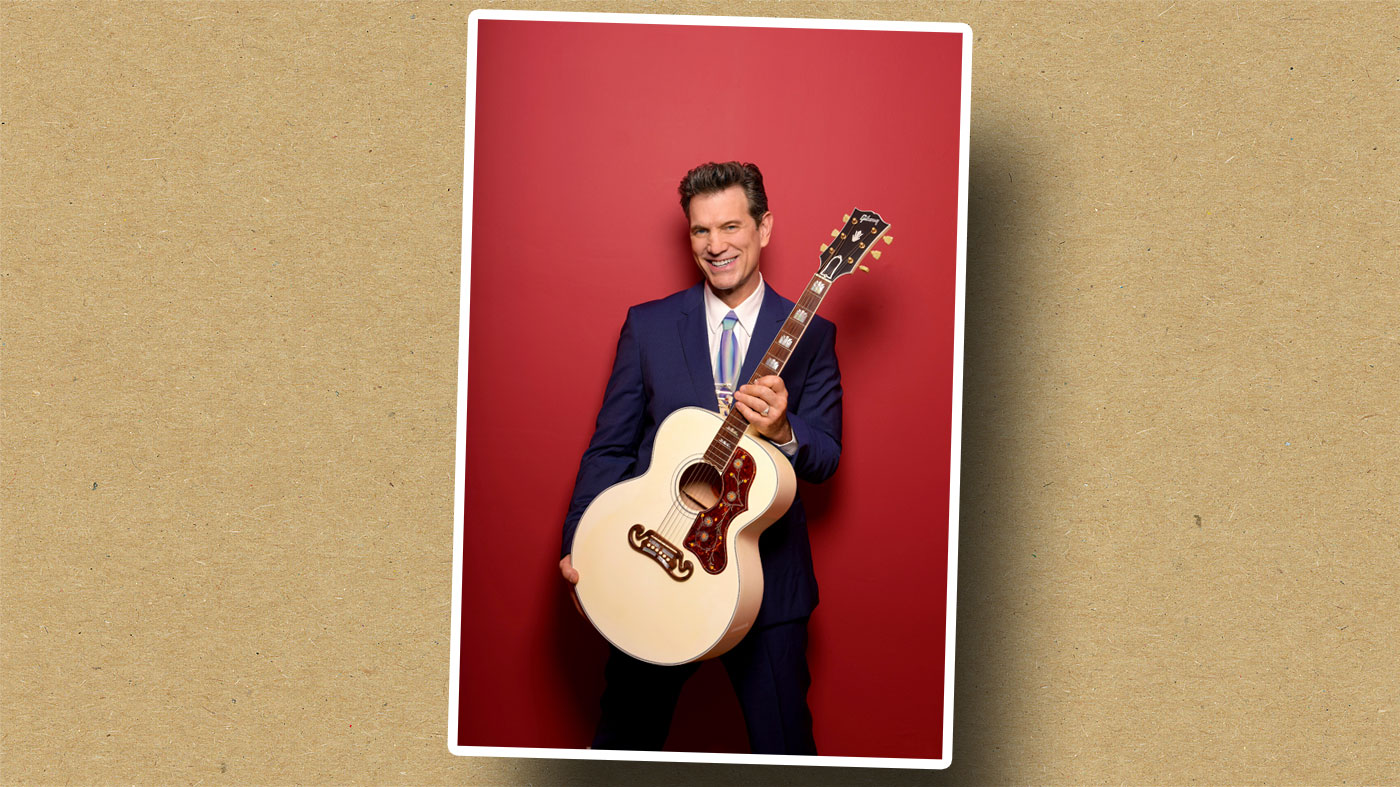
Divvying up the chops
Hershel Yatovitz has played lead guitar in your band for 21 years now...
Hershel’s got a wider palette than just about any guitar player I’ve seen
“Hershel’s a great player. A lot of guitar players’ egos are too big and they won’t play anything that anybody else ever played. If I say to Hershel, ‘I want you to come up with a riff,’ he’ll do it and come up with something great. But if I say to him, ‘On this, I want you to do these riffs or cop this feel,’ he’ll also do that in a second. Hershel’s got a lot of chops.
“When we were making this last record, I went out to a Greek restaurant and there was a guy playing bouzouki and I went, ‘I want a sound like that on Perfect Lover.’ I wanted a little riff in there, just a touch, and Hershel gave it to me straightaway. He’s got that ease on his guitar where he can go from traditional Spanish guitar playing to a distorted punk sound to a bouzouki sound. He’s got a wider palette than just about any guitar player I’ve seen.”
How did you and Hershel divvy out the parts on the new record?
“Well, Hershel played on this record but we also used some guys out of Nashville like Jerry McPherson, who’s a great player. Paul Worley [session guitarist and partproducer of First Comes The Night] played a little rhythm guitar, although usually I played all the rhythm guitar; Paul was great. Then Dave Cobb [another of the album’s producers] was like a national champion drummer in his teens and his rhythm is impeccable. At one point, he said, ‘How about if you play this rhythm guitar part?’ and he played this rhythm on the guitar. I just said, ‘Why don’t you play it? You’ve got it nailed! I can just sing.’ There’s a mix and match on there.”
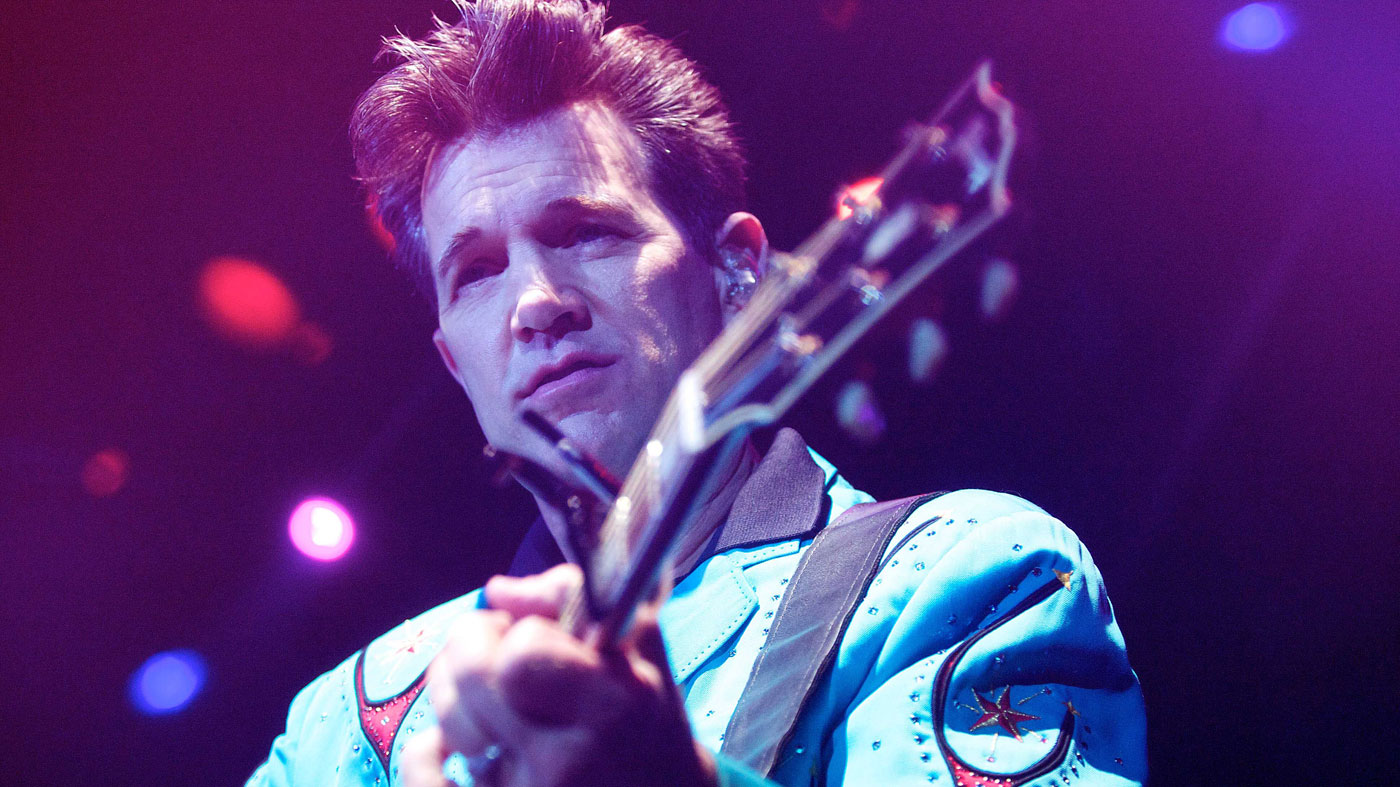
Taking the lead
Do you ever play solos and get involved in lead work?
I’m probably one of the few guitar players who doesn’t want to play lead most of the time!
“I’m probably one of the few guitar players who doesn’t want to play lead most of the time! I love playing rhythm and I love listening to the lead guitar player. I’ll only speak up when he stops playing. I’ll try to stay out of his way… but I will do a couple of solos a night live.
“On the record, I did a little bit on Every Night I Miss You More and I have some lead and solo riffs on Dry Your Eyes. I write the songs so I’ll have a riff that goes in there, but I’m always looking for somebody to play it better than I can, and 99 per cent of the time somebody can. Once in a while, I’ll go, ‘No, I like my feel on this one,’ so there’ll be me and another guitar player and I’ll just pull out a few.”
Which guitars did you play on First Comes The Night?
“I played mostly acoustic on this record and some electric and almost all Gibsons. I had one old guitar that I brought with me, which is an Italian guitar. In 1963, they made these guitars with three pickups and a whammy bar. They look like a real surf guitar… and, God, they sound great but I can’t remember the name! My bass player, who thought it was a joke, gave me this guitar and I started using it in the studio. It’s so different sounding. We looked it up online and it said, ‘You can’t find these guitars any more. These are really expensive and collectible!’
“I love Gibson acoustics. They’re always good for backing up the voice and sounding nice and warm. I usually use a J-200.”
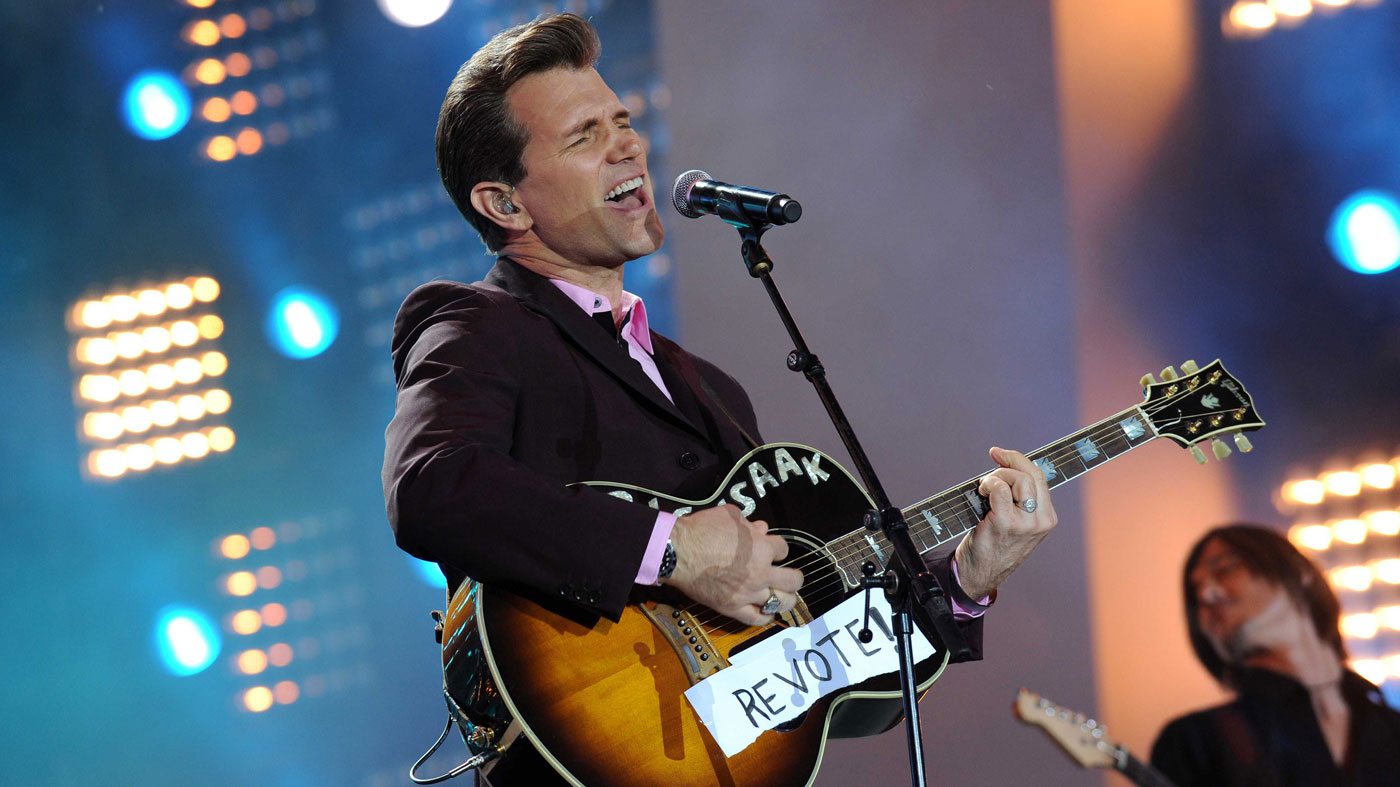
One careful owner
What about amps and effects?
“I’ve had one amp almost my whole career. One amp! Damn, that was a good buy. For my first ever couple of shows, I had a Silvertone amp and a Silvertone guitar. Nobody liked tube amps back then because they all wanted solid-state, which meant you could get tube amps really cheap, but that Silvertone didn’t have much power. Everything was a little bit distorted even at low levels.
I bought a ‘blackface’ early 60s Twin and it’s just been the best amp ever since and it never breaks
“Then somebody said, ‘You should get a Fender. The Fender Twin is a good amp.’ I bought a ‘blackface’ early 60s Twin and it’s just been the best amp ever since and it never breaks. I put a little bit of tremolo on it, but not much - probably three or something like that - and then usually a little bit of reverb. I’ll hardly adjust anything for the whole show, but once in a while, if I have a song that’s got a special tremolo part, I’ll go back there and speed it up.
“My guitar player has got 32 pedals. I keep going, ‘No more pedals than five - you can’t have more than five pedals!’ I think guitar players look at pedals like women; they just want all of everything they see. I go, ‘You’ve got reverb, tremolo, an echo box, a distortion box and a volume pedal - that’s five pedals and you’re covered!’ Past that, you’re just screwing around, you know what I mean? What else do you need?”
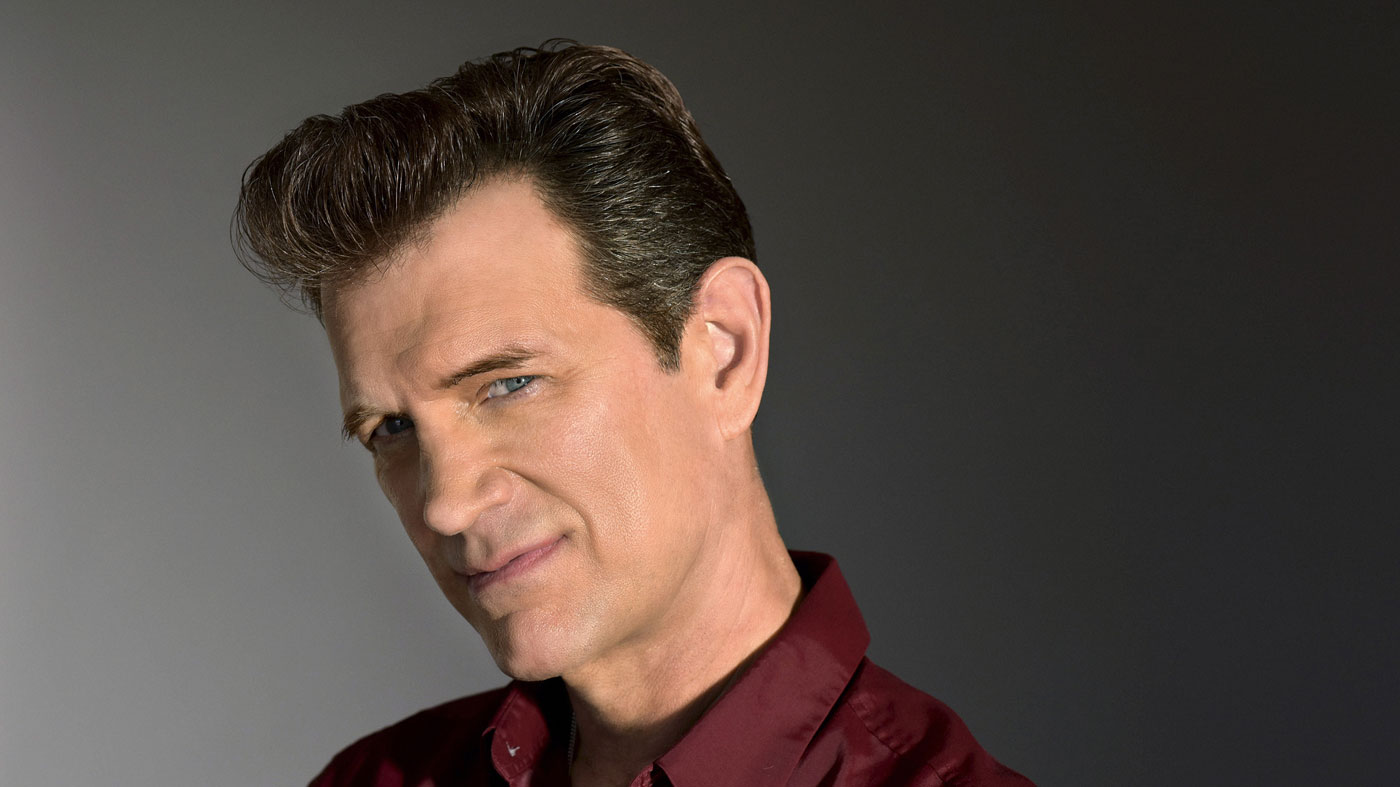
Sketches vs paintings
Can you sum up the ethos of your band?
“I like the wildness and fun of things like early punk music. It’s not what I do, but I used to play all the punk clubs and I liked all that energy - ‘Screw it, we don’t care that we can’t play this right! We’re having fun!’
I have a slogan for the band and it’s, ‘Perfection eludes us!’
“Rockabilly was that way when it came out and rock ’n’ roll was that way at first. On this record, working with Dave Cobb felt like that. He’s got that energy of, ‘Anything goes - we’re going to have fun!’
“I think I’ve always tried to maintain that fun element during my career. There were times when I worked with some people who would try to get me to be precise, but I never felt like precision was my game. Actually, I have a slogan for the band and it’s, ‘Perfection eludes us!’ We’re not perfect and we’re not going to be, but I like the sound of people playing all together and catching a moment. If you can sing good and you have good players, that’s good.
“If you have to do things 43 times and then put it all together, it can work - and I’ve done it myself - but most of the time, you lose something. I love to cartoon and I sketch a lot and I always like sketches better than paintings because all the motion and the flow is right there. You can just see the lines - and that’s the thrill in rock ’n’ roll. It’s not about the perfect painting afterwards.”
Chris Isaak’s latest album, First Comes The Night, is available now via Wicked Game Records.

